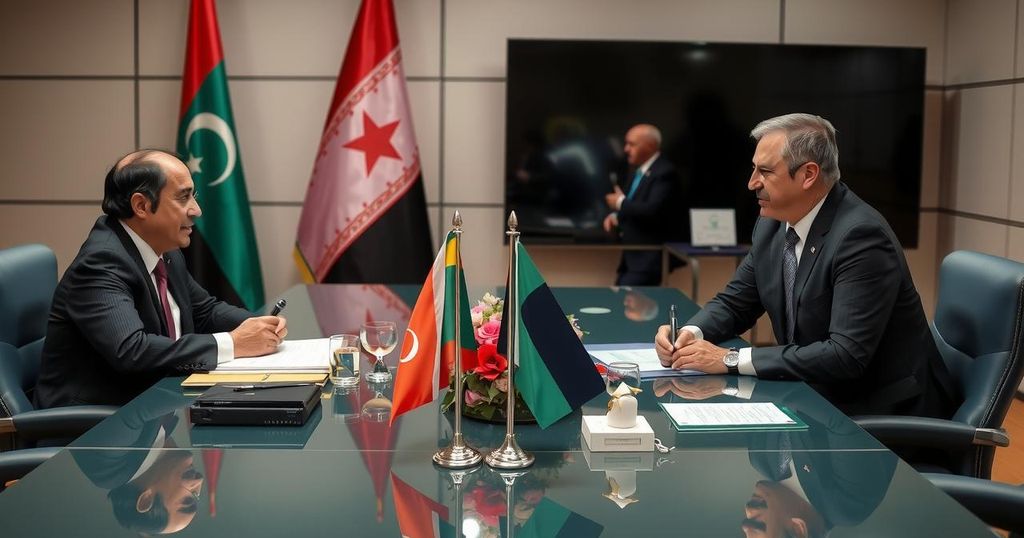A Libyan official met with Syria’s new leader to discuss diplomatic relations, energy cooperation, and migration issues, signaling a strengthening of ties between the two nations. This engagement is particularly significant given the backdrop of Libya’s political fragmentation and Syria’s ongoing transitional phase.
A senior Libyan official from the UN-recognized government recently convened with Syria’s newly appointed leader, Ahmed al-Sharaa, in Damascus. Their discussions encompassed vital topics such as the enhancement of diplomatic relations, strategies concerning energy resources, and the pressing issue of migration. Libyan Minister of State for Communication and Political Affairs, Walid Ellafi, articulated the need for robust cooperation particularly in security and military sectors while underscoring the significant impacts of illegal immigration, especially given Libya’s role as a transit point for Syrians seeking a better future in Europe.
Ellafi further highlighted the intention to bolster diplomatic ties, announcing the presence of the charge d’affaires at their meeting, and indicating aspirations for establishing a permanent ambassadorial position to strengthen bilateral relations. This meeting marks a notable diplomatic development, particularly after Libya had not maintained a representation in Syria since the ousting of dictator Moamer Kadhafi in 2011. Concurrently, meetings between Sharaa and other regional leaders, including a visit by Bahrain’s strategic security chief, reflect a growing regional interest in engagement with Syria’s new authorities following the shifts in power dynamics within the region.
The discussions between Libyan and Syrian officials emerge in a context where Libya’s political landscape is fragmented, with a UN-recognized government in Tripoli and a rival administration led by Khalifa Haftar. The ongoing civil war in Syria has forced many Syrians to seek refuge in Libya, causing concerns about illegal migration via perilous sea routes to Europe. Libya’s renewed engagement with Syria indicates a strategic pivot as Arab states evaluate opportunities for dialogue and cooperation with Damascus’s new leadership as it navigates its transitional phase post-Assad. This situation is further complicated by the broader geopolitical implications of regional power dynamics and diplomatic recognitions.
In conclusion, the meeting between Libyan officials and Syria’s new leadership underscores a pivotal moment for both nations as they seek to fortify diplomatic ties while addressing critical issues, such as energy cooperation and migration management. The Libyan Minister’s emphasis on enhanced security collaboration and the call for a stronger diplomatic presence reflects a broader commitment to stability in the region amid changing political landscapes. As Libya and Syria navigate this transitional phase, the outcomes of such diplomatic engagements will be pivotal for both countries’ future relations and regional stability.
Original Source: www.hindustantimes.com






